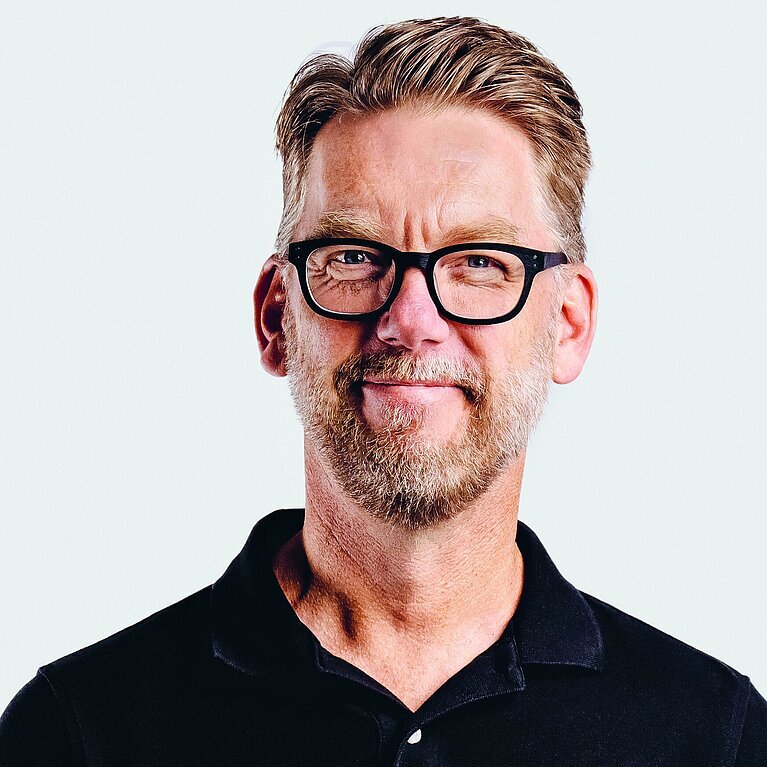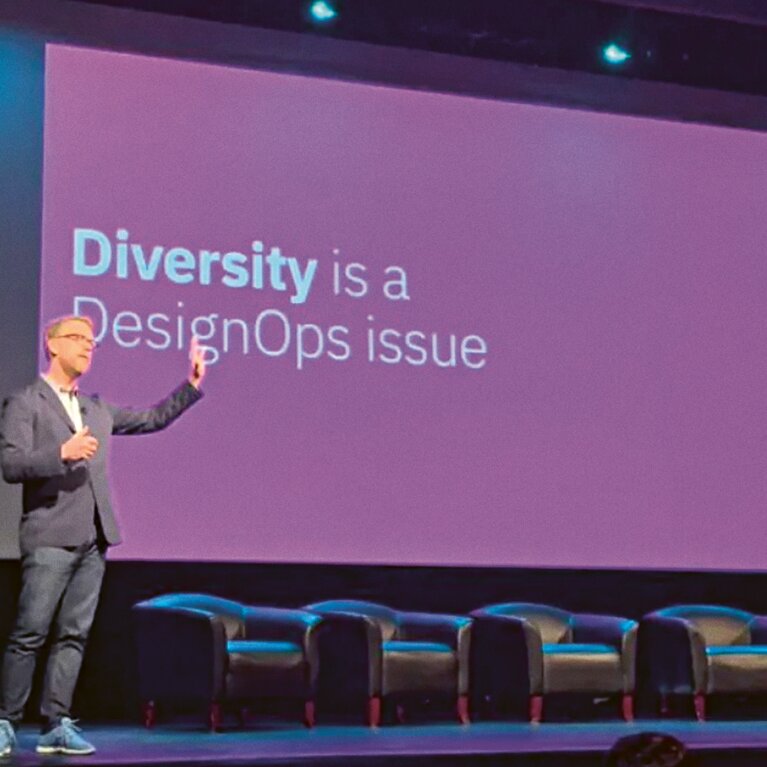

OLIVER HERWIG: Given your experience as IBM’s Vice President of Design: How creative are big companies when it comes to rapid change?
DOUG POWELL: Big companies are not very good at rapid change. That is especially true for big old companies. But the key word was rapid change. A global company, a massive company of hundreds of thousands of people is not set up for being reactive to changing conditions.
OH: In the case of IBM, you’ve done something about it …?
DP: When we launched the program in 2013, they did not have the talent, the human skill and capital inside the company to build that sort of muscle. And this was an important part of the mission that I took on when I joined there.
OH: One of your major themes is leadership by design. How does design help in times of disruption?
DP: Our core superpower as designers is to focus on the needs of real people. That is a unique quality within a big company. The marketers are paid to think about the market, the competitive landscape, the opportunities for the business. The engineers are paid to think about how to build this. And the data scientists are thinking about the data. There are lots of very smart people doing very important things.

OH: And designers…
DP: … think about who are the people who are going to use this thing that we are going to build. What are their needs? What are their pain points? What brings them joy? What frustrates the heck out of them? And how can we create a better experience for that designer focus on the needs of a real person? So that’s a very important distinction and an important reason why designdriven companies are outperforming the market.
Designers are change agents.
OH: You just described big companies as dysfunctional families. Their members don’t talk to each other. They don’t understand the various needs of the others.
DP: It’s absolutely true. It’s chronic. If you look at how big companies are organized, they typically have divisions. And over time, those organizations are naturally going to get isolated from the other parts of the business who are accountable for other things. That’s the nature of the world we live in
OH: How about designers? What should they do?
DP: Designers are connectors. That is another of their superpower. In the best circumstances we are positioned to say, “Hey, I’m seeing something over in another part of the company that is very interesting. And I think it could help us or I think we could help them.” Let’s get the right people together and let’s compare notes. That’s a very rare quality in big companies, and that’s something that I see designers being able to do. And through our methodology of design thinking or human centered design we have a set of activities and behaviors that can really inspire that kind of crossing-over and connecting.
OH: So, it is about soft power.
DP: That is a very good way to put it. And yes, that is a very important way for us to operate.
OH: You have been training designers to act as leaders. Would you say these people are more creative in times of crisis?
DP: Yes, they have the ability for it. My hope is that design leaders in a time of pressure or crisis are going to lead through their abilities as designers. I don’t always see that. In fact, instead, I see that too many designers, when they get to a more senior level in their career, experience a moment of crisis. Something happens that we weren’t expecting. So, rather than calling on their design abilities, they pretend to be a leader, the type of leader that they aren’t.
OH: Why is that so?
DP: They see those soft skills don’t get valued in the same way in that moment of crisis. Most design leaders are in a role that they were not trained to do. And yet here we are, myself included, in these big companies with a lot of expectations and a lot of accountability. And we have to learn on the job, which is very challenging. And that is where we are right now in the profession.
Oliver Herwig: What is your idea of innovation in a time of crisis?
DP: Well, it’s challenging in a time of crisis. That’s not when you should be innovating. If you’re trying to innovate in a time of crisis, you’ve already lost. You’ve probably already been disrupted by the outsider. What the real challenge is, is to get big companies to build the muscle of innovation when it’s not a crisis. And to invest in it and to nurture it over time. So that innovation becomes a natural way of being and of behaving.
OH: You have trained people in the company to understand that ...
DP: ... innovative, creative thinking could happen naturally rather than happening only in a special way. At IBM, we needed to get it into the DNA of the company. Ultimately, we were able to train over half of the company in this in this practice.
OH: What kind of methods were used in this program?
DP: The key is behavior. And the key activity is cross-functional collaboration and co-creation: teams of people who do different things, people who have different skillsets, different backgrounds, different priorities, different ways of thinking. The design thinking methodology brings those different people and points of view and expertise together and gives them a set of activities where they can all participate in an equal way. With a focus on that human being that they’re all building for.
Oliver Herwig: If I had attended your program ...
DP: … you would have come away with a set of skills that would help you pay attention to the needs of people. We weren’t talking a lot about disruption. Because, hopefully, when teams are operating in this way, they are ahead of disruption. We’re hoping that they become the disruptors internally.
OH: “How disruption unleashes creativity” is this year’s motto. But you turned it around: “Creativity unleashes disruption.”
DP: Yeah. That’s an interesting way to view it. You can play it both ways. I think when we can become the disruptors rather than the disrupted, that’s the win.
The interview with Doug Powell first appeared in mcbw mag 2023.
